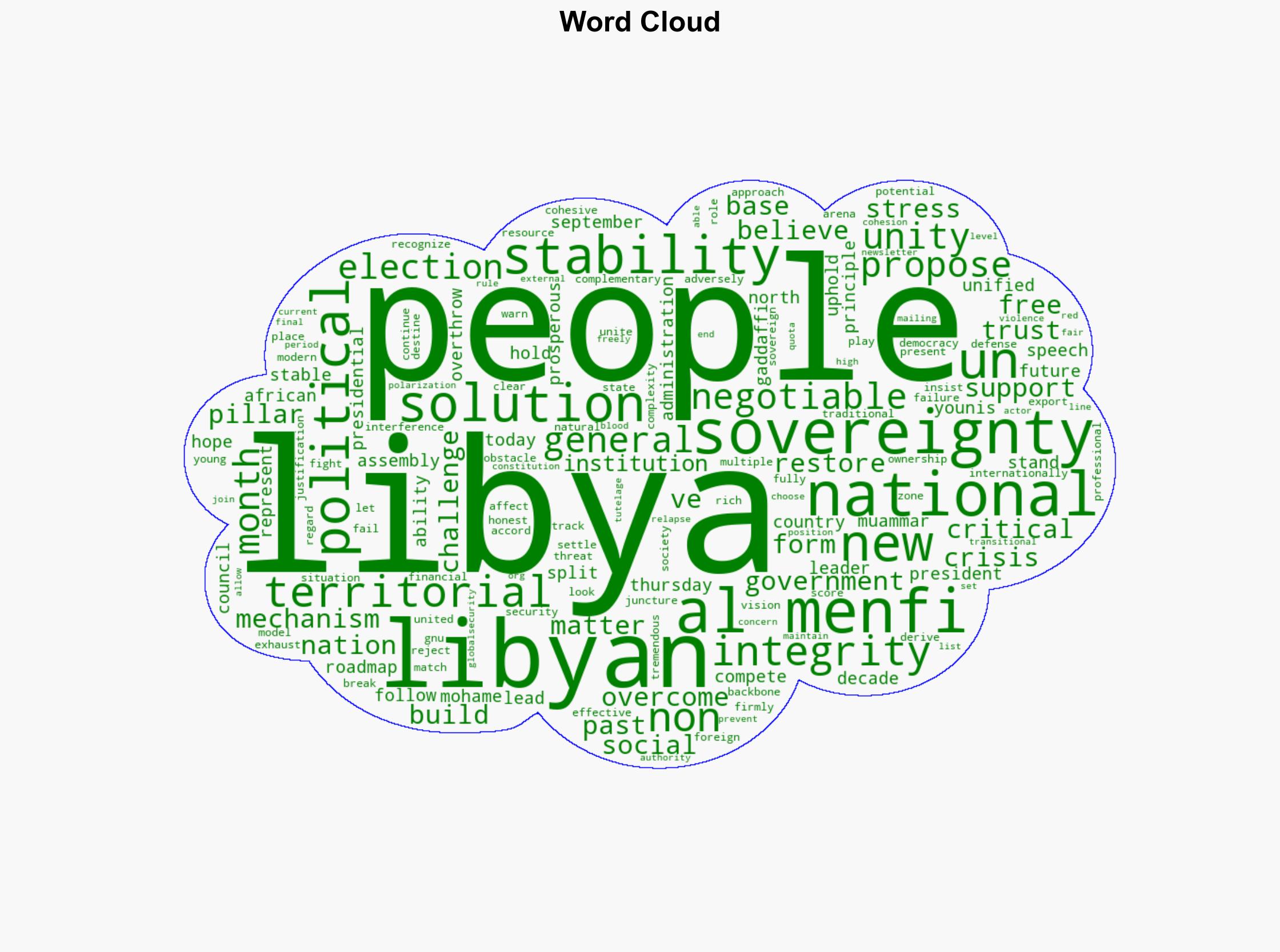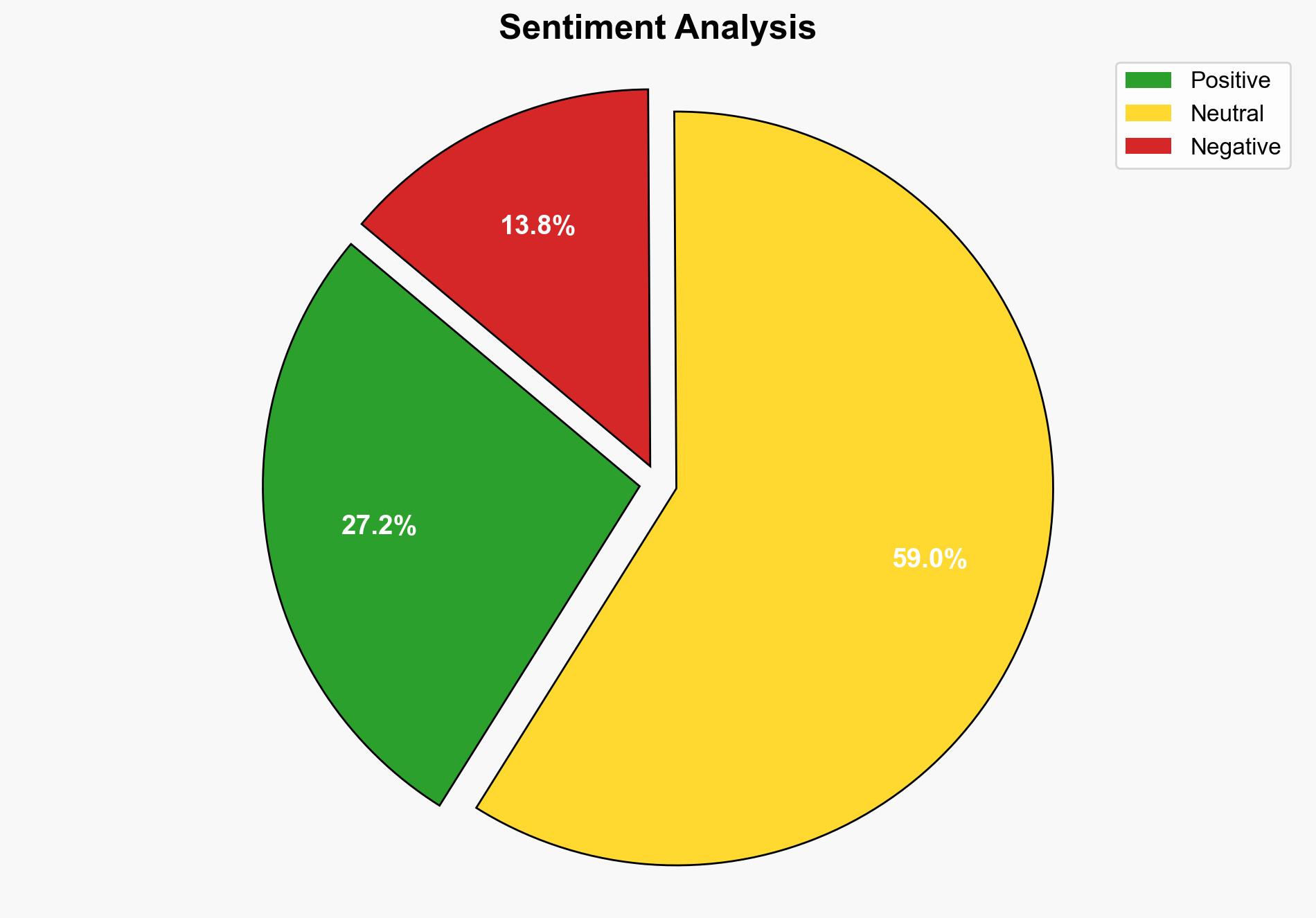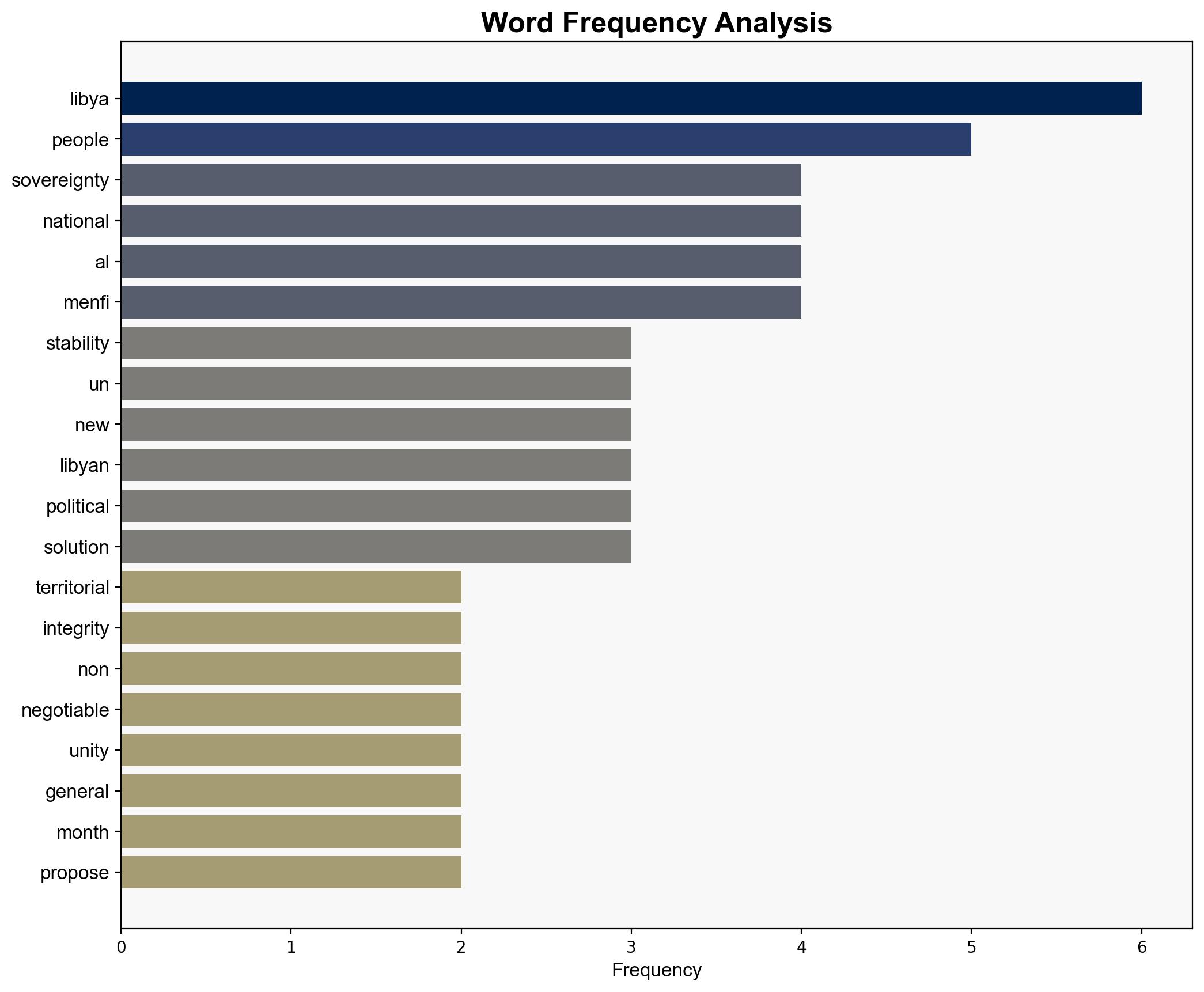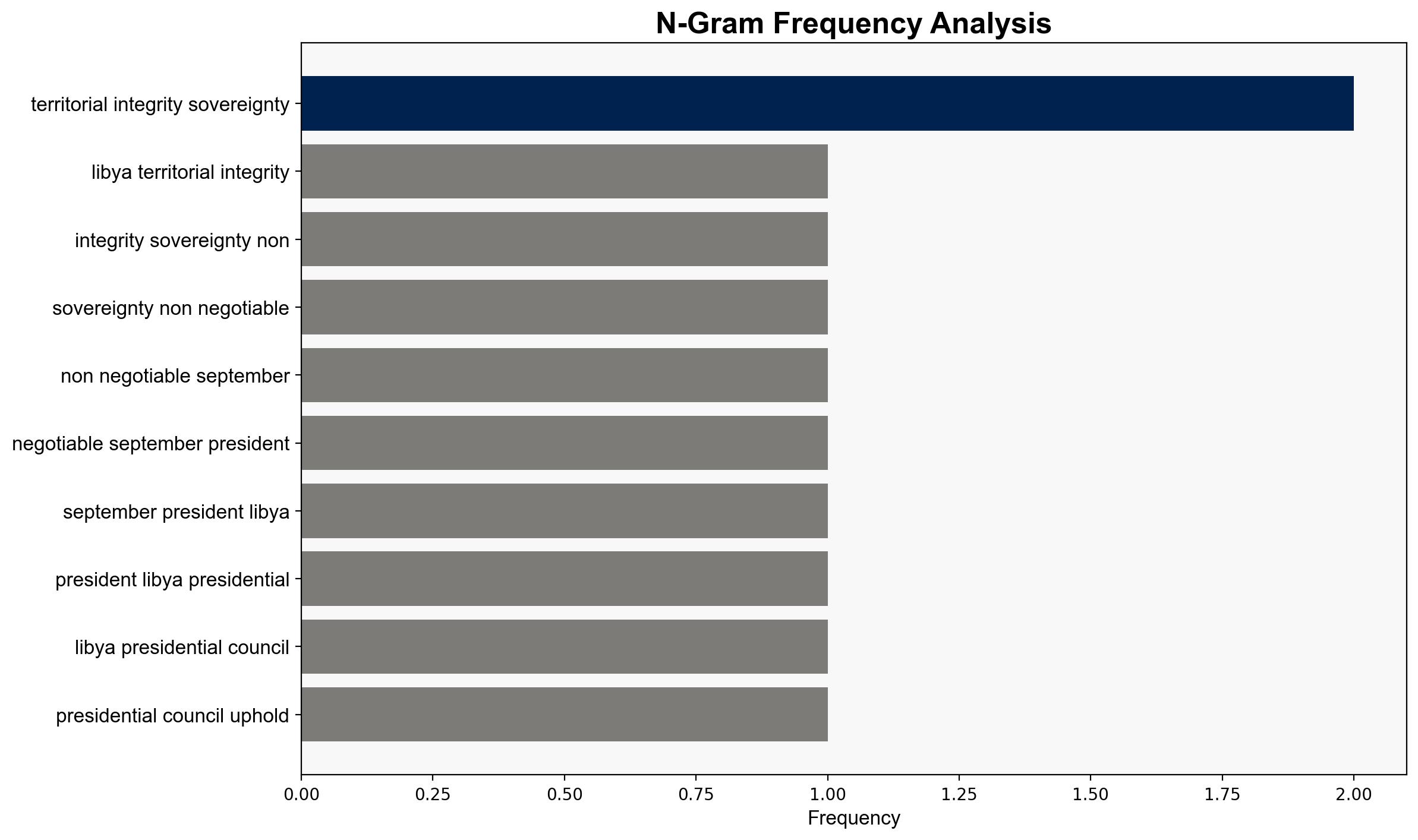Libya’s territorial integrity and sovereignty ‘are non-negotiable’ – Globalsecurity.org
Published on: 2025-09-29
Intelligence Report: Libya’s territorial integrity and sovereignty ‘are non-negotiable’ – Globalsecurity.org
1. BLUF (Bottom Line Up Front)
Libya’s commitment to its territorial integrity and sovereignty is emphasized amidst ongoing political fragmentation and foreign influence. The most supported hypothesis suggests that Libya’s leadership is genuinely pursuing a unified national agenda, albeit with significant challenges. Confidence level: Moderate. Recommended action: Support diplomatic efforts to facilitate a unified government while monitoring foreign interference.
2. Competing Hypotheses
1. **Hypothesis A**: Libya’s leadership, represented by Mohamed Younis Al-Menfi, is genuinely committed to restoring national sovereignty and unity, seeking to establish a stable government through upcoming elections.
2. **Hypothesis B**: The public commitment to sovereignty and unity is primarily rhetorical, aimed at reducing external pressure and maintaining power amidst internal divisions and foreign influence.
Using ACH 2.0, Hypothesis A is better supported by the emphasis on national ownership and rejection of foreign interference, aligning with statements made by Al-Menfi. However, the persistent internal divisions and historical failures to unify suggest elements of Hypothesis B may also be valid.
3. Key Assumptions and Red Flags
– **Assumptions**: It is assumed that the Libyan leadership has the capacity and genuine intent to unify the country. It is also assumed that external actors will respect Libya’s sovereignty if a clear national agenda is presented.
– **Red Flags**: The lack of detailed plans for implementing the proposed roadmap and the historical context of failed unification efforts raise concerns. Potential cognitive bias includes overestimating the influence of international support and underestimating internal resistance.
4. Implications and Strategic Risks
– **Patterns**: Continued political fragmentation could lead to increased foreign intervention and destabilization.
– **Cascading Threats**: Failure to unify could exacerbate regional instability, potentially leading to increased migration and security threats.
– **Escalation Scenarios**: If elections are delayed or disputed, it could trigger renewed violence and further entrench divisions.
5. Recommendations and Outlook
- Encourage international diplomatic efforts to support Libya’s electoral process and political unification.
- Monitor foreign influence and interference, particularly from regional powers with vested interests in Libya.
- Scenario Projections:
- Best: Successful elections lead to a unified government, reducing foreign influence and stabilizing the region.
- Worst: Elections are delayed or disputed, leading to renewed conflict and increased foreign intervention.
- Most Likely: Partial progress towards unification with continued external influence and internal challenges.
6. Key Individuals and Entities
– Mohamed Younis Al-Menfi
7. Thematic Tags
national security threats, regional focus, foreign influence, political unification





